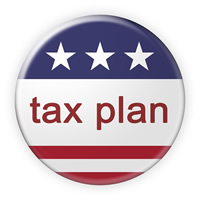House Approves Tax Reform Bill; AICPA Seeks Same Tax Rate for All Passthroughs
November 22, 2017

The American Institute of CPAs (AICPA) applauded the U.S. House of Representatives for its November 16 passage of a tax reform bill that “moves the nation one step closer to a fairer, simpler Tax Code.”
“As a long-time advocate for an efficient and pro-growth tax system based on principles of good tax policy, we commend the House for expanding the number of taxpayers who may use the cash method of accounting,” said AICPA President and CEO Barry C. Melancon, CPA, CGMA. “We also applaud the decision to maintain the current tax treatment of nonqualified deferred compensation. We are encouraged by the progress made by lawmakers in recent days and believe this vote moves the nation one step closer to a fairer, simpler Tax Code.”
Senate Bill
As attention shifts to the U.S. Senate’s tax reform proposal, which was approved by the Senate Finance Committee on November 16, Melancon noted the profession appreciates the increasing recognition of the important economic role passthrough service entities play in job creation. The AICPA has urged tax writers to provide consistent tax rates on business income generated from all of America’s pass-through entities, including professional service firms. Melancon also said that the AICPA looks forward to working with lawmakers as the bill continues to move through the legislative process to ensure that Congress maintains the full state and local tax (SALT) deduction for taxes paid or accrued in carrying on a trade or business.
Edward S. Karl, CPA, CGMA, vice president of taxation for the AICPA, discussed the bill approved by the Senate Finance Committee in a video on November 16. One of the subjects he covered in the video was the likely effective date for the legislation. Karl said, “Congress and the Administration have been clear that they would like to see a bill enacted before the end of December, generally with a January 1, 2018 effective date. And even if the conference extends into January, if the legislation is enacted before the end of January, I would still generally expect a January 1, 2018 effective date.”
Transition Relief
The AICPA urged lawmakers to consider appropriate transitional provisions in recent letters. For example, the AICPA recommended providing penalty relief for estimated payments due prior to the later of June 30, 2018, or 120 days after the effective date of the legislation. The AICPA stressed that taxpayers and preparers need sufficient time to determine the appropriate estimated tax payments for businesses and individuals that may have a dramatically different tax liability in the 2018 year as a result of the legislation.
Over the last five years the AICPA has provided over 100 comment letters, position papers and statements for the record on tax reform in the interest of good tax policy and effective tax administration.
The full Senate is expected to begin consideration of the tax bill the week of November 27.
To stay abreast of the tax reform debate, and its impact on CPAs, visit our Tax Reform Resource Center.
